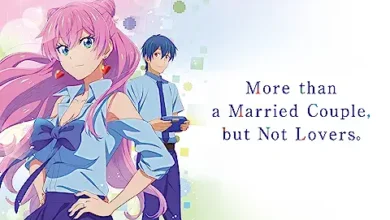Not Stolen Book: A Journey Through Authentic Narratives

Introduction:
In a literary landscape often marred by tales of theft and appropriation, the “not stolen book” concept shines as a beacon of authenticity. These works have not fallen prey to plagiarism or unethical borrowing, preserving their originality and integrity. This article delves into the realm of the not stolen book, exploring its significance, characteristics, and the trust it builds with readers.
In the vast realm of literature, the authenticity of works takes center stage. Among the concerns that writers, readers, and critics share, the issue of stolen books stands out as a matter of paramount importance. This article delves into the depths of genuine literary creations and unveils the truth behind English not stolen books. Through critical analysis and informative exploration, we aim to shed light on the significance of originality in literature and how it influences the creative landscape.
In literature, “English, not stolen books” embody the essence of genuine creativity. They are a testament to the unwavering commitment of writers to forge their paths, to craft narratives that transcend time and echo the human experience. As we champion authenticity, remember that each written work reflects a writer’s soul, a piece of their legacy etched into the annals of literary history. In embracing “not stolen books,” we celebrate the power of original thought, the beauty of diverse perspectives, and the resilience of the human imagination.
Championing Authenticity: Literary Industry’s Role
The responsibility of upholding authenticity extends to writers and publishers, editors, and critics. The literary industry is pivotal in fostering an environment where originality thrives. By recognizing and promoting “English, not stolen books,” publishers celebrate the value of genuine creativity. Furthermore, editors ensure that works undergo thorough scrutiny, minimizing the chances of inadvertently perpetuating literary theft.
Defining a New Standard: English Not Stolen Books
The concept of “English not stolen books” represents a clarion call for a new standard in literature. It advocates for the preservation of the author’s unique voice, the protection of creative labor, and the appreciation of diverse perspectives. In a world that sometimes prioritizes quantity over quality, embracing this standard ensures that literary works continue to inspire, provoke, and resonate.
Empowering the Next Generation of Writers
Cultivating a generation of writers committed to producing original content requires a collective effort. In shaping the creative minds of the future, educational institutions, writing workshops, and mentorship programs play a crucial role. These platforms nurture writers who understand the value of their authentic contributions by emphasizing the significance of “English not stolen books,” and instilling a strong sense of integrity.
The Significance of Not Stolen Book
Not just words on paper, not stolen books, represent a commitment to genuine storytelling. Their significance goes beyond the pages, touching on trust, creativity, and the preservation of authorship. Originality serves as the lifeblood of literature. At its core, writing revolves around the unique expression of thoughts, emotions, and ideas. Authors pour their hearts and minds onto pages, crafting narratives that captivate readers and resonate through time. A writer’s distinctive voice, combined with their innovative approach, breathes life into a literary work. In a world saturated with content, the allure of authenticity remains unwavering, making “not stolen books” a hallmark of literary excellence. Not rejected just unwanted full book free pdf download.
Upholding Authenticity
The Heart of the Matter: How not stolen books stand as beacons of authenticity in a literary world often plagued by disputes.
The Art of Originality
Crafting Worlds, Crafting Trust: Exploring the creative process that birthed the not stolen book, upholding the sanctity of original thought.
Characteristics of Not Stolen Book
These literary treasures share distinct characteristics that distinguish them from their controversy-ridden counterparts.
Unwavering Authorship
Pen to Paper, Heart to Words: How not Stolen books celebrate and protect the author’s unique voice and narrative.
Extensive Research Ethics
Unearthing Truths: The rigorous research and ethical considerations underpin not stolen books’ factual foundations.
Ethical Literary Dialogue
Conversations, not Copies: How not stolen books engage in meaningful dialogues with the works that came before, without infringing on their essence.
Navigating the Trust Minefield
In an era of uncertainty, readers seek refuge in the pages of books that assure them of authenticity. Not stolen books bridge the gap between author and reader through trust.
The Reader’s Confidence
A Pact of Trust: How readers find solace in the not stolen book, assured that their narrative is a product of untainted creativity.
Cultural Preservation
A Delicate Balance: How not stolen books honor cultural narratives without misappropriation, fostering cross-cultural understanding.
Dispelling Myths and FAQs about Not Stolen Book
Unraveling the mysteries surrounding not stolen books and addressing common questions.
Aren’t All Books Original?
Distinguishing Genuine Originality: Exploring what sets not stolen books apart from the wider literary domain.
How Do Authors Ensure Authenticity?
Behind the Scenes: A glimpse into authors’ practices to ensure their work remains untainted by plagiarism.
Can Not Stolen Books Draw Inspiration?
The Fine Line: Understanding the difference between drawing inspiration and crossing into the realm of plagiarism.
The Future of Not Stolen Book
As the literary landscape continues to evolve, the concept of not stealing books paves the way for a more trustworthy and respectful storytelling environment.
Inspiring Future Generations
A Legacy of Authenticity: How not stolen books inspire emerging authors to uphold originality and ethical, literary practices.
A Call for Ethical Readership
Shared Responsibility: How readers can support the not stolen book movement by valuing and seeking out authentic narratives.
Conclusion:
In the ever-shifting realm of literature, the “not stolen book” is a testament to authentic storytelling’s power. These books captivate readers with their narratives and cultivate trust between authors and their audiences. As we embrace the era of originality and ethical authorship, the not stolen book reminds us that true creativity knows no shortcuts. So, let us turn its pages and be inspired to uphold the sanctity of storytelling, one authentic word at a time.




